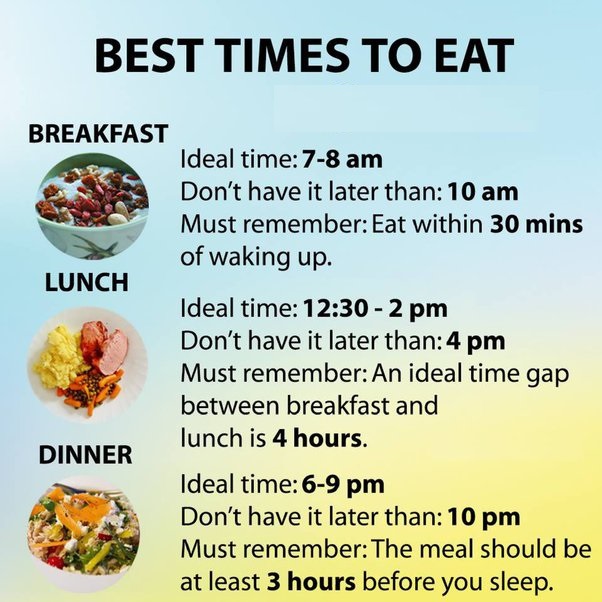Finding the Right Balance: How Often Should I Eat Per Day?
Introduction:
In the realm of nutrition and wellness, one question that often arises is, “How often should I eat per day?” The frequency of meals is a crucial aspect of maintaining a healthy lifestyle, and it plays a significant role in sustaining energy levels, managing weight, and supporting overall well-being. Let’s explore this topic and delve into the factors that can help you find the right balance in your daily eating routine.
Body:
Table of Contents
Listen to Your Body’s Signals:
The concept of eating when you’re hungry and stopping when you’re full is a fundamental principle. Paying attention to your body’s signals can guide you in determining your individualized eating pattern. Everyone’s metabolism and nutritional needs differ, so it’s essential to cultivate a mindful approach to eating.
Regular Meals vs. Snacking:

The traditional three-meals-a-day routine has been a standard for many, but the popularity of snacking has challenged this norm. Some people find success with three balanced meals, while others prefer a more frequent approach, incorporating healthy snacks throughout the day. The key is to choose nutrient-dense options that provide sustained energy.
Balancing Blood Sugar Levels:
Eating at regular intervals can help stabilize blood sugar levels, preventing extreme highs and lows. This is particularly important for individuals with conditions like diabetes or those prone to energy crashes. A balanced combination of carbohydrates, proteins, and fats in each meal contributes to sustained energy release.
The Role of Breakfast:
The saying “breakfast is the most important meal of the day” holds merit. A nutritious breakfast kickstarts your metabolism and provides the energy needed to tackle the day ahead. However, the emphasis should be on the quality of breakfast, incorporating a mix of protein, fiber, and healthy fats.
Personalized Approaches:
There is no one-size-fits-all answer to the question of how often one should eat. Some people thrive on three square meals, while others prefer smaller, more frequent meals. Intermittent fasting, which involves cycles of eating and fasting, has gained popularity and may be suitable for some individuals. It’s crucial to find an approach that aligns with your lifestyle and suits your body’s needs.
Hydration Matters:
Staying adequately hydrated is often overlooked but is integral to overall health. Sometimes, feelings of hunger can be confused with dehydration. Drinking water throughout the day can help maintain hydration levels and contribute to a sense of fullness.
FAQs on How Often Should I Eat Per Day
How many hours apart should you eat?
The ideal time between meals can vary from person to person, but a general guideline is to aim for about 3 to 4 hours between meals. This allows your body to digest the previous meal fully and helps maintain stable blood sugar levels. However, it’s crucial to listen to your body’s hunger and fullness cues, as well as your individual energy needs.
Is it OK to eat every 2 hours?

Eating every 2 hours can be suitable for some individuals, especially those with higher metabolism or those following a more frequent, smaller meal pattern. The key is to ensure that each mini-meal is balanced and provides essential nutrients. This approach can be beneficial for maintaining energy levels and preventing overeating during main meals.
How much do I actually need to eat every day?
The daily caloric and nutritional needs vary based on factors such as age, gender, activity level, and health goals. It’s essential to consume a well-balanced diet that includes a mix of macronutrients (carbohydrates, proteins, and fats) and micronutrients (vitamins and minerals) to meet your body’s requirements.
Is it OK to only eat 1 meal a day?
While intermittent fasting, including the “one meal a day” (OMAD) approach, has gained popularity, it may not be suitable for everyone. It’s crucial to ensure that the single meal provides all the necessary nutrients and calories to meet your body’s needs. Consulting with a healthcare professional or nutritionist before adopting such an eating pattern is advisable.
What is the healthiest eating schedule?
The healthiest eating schedule is one that aligns with your lifestyle, includes a variety of nutrient-dense foods, and meets your individual nutritional needs. A balanced approach might involve three main meals with healthy snacks if needed, ensuring a mix of essential nutrients throughout the day.
What is the healthiest time to eat?
The healthiest time to eat is subjective and depends on personal preferences and daily routines. However, many nutritionists recommend consuming a substantial breakfast to kickstart metabolism and distributing calorie intake throughout the day, with a lighter meal in the evening.
What are the side effects of long gaps between meals?
Long gaps between meals can lead to various side effects, including decreased energy levels, irritability, difficulty concentrating, and overeating during the next meal. It can also impact blood sugar levels, potentially leading to mood swings and cravings for unhealthy foods.
What time should I stop eating?
Ideally, it’s recommended to finish eating at least 2-3 hours before bedtime to allow for proper digestion. This can contribute to better sleep quality and may help prevent indigestion or discomfort during the night.
What food is OK to eat before bed?
Light and easily digestible snacks are suitable before bedtime. Opt for options like a small serving of yogurt, a piece of fruit, or a handful of nuts. Avoid heavy, spicy, or caffeine-containing foods, as they may disrupt sleep.
What happens when you eat little food?
Consuming too few calories can lead to nutrient deficiencies, fatigue, muscle loss, and a weakened immune system. It’s essential to eat enough to meet your body’s energy needs and provide the necessary nutrients for overall health.
What’s the best time for breakfast?
Consuming breakfast within 1-2 hours of waking up is generally recommended to kickstart your metabolism and provide the energy needed for the day ahead. A breakfast rich in protein and fiber can help keep you feeling full and satisfied throughout the morning.
Conclusion:
In the quest for optimal health, finding the right frequency of meals is a personal journey. Listening to your body, incorporating nutrient-dense foods, and maintaining a balanced lifestyle are key elements. Whether you opt for three square meals or a combination of meals and snacks, the emphasis should be on nourishing your body in a way that promotes sustained energy and overall well-being. It’s not just about how often you eat but also about the quality of the foods you choose to fuel your body.
References
- https://www.ncbi.nlm.nih.gov/pmc/articles/PMC2805706/
- https://www.ncbi.nlm.nih.gov/pmc/articles/PMC2876930/
- https://www.ncbi.nlm.nih.gov/pubmed/21183323
- https://www.ncbi.nlm.nih.gov/pubmed/21715508
- https://www.sciencedirect.com/science/article/pii/S0308814602001863
- https://www.ncbi.nlm.nih.gov/pubmed/12680234
- https://www.ncbi.nlm.nih.gov/pubmed/20022464
